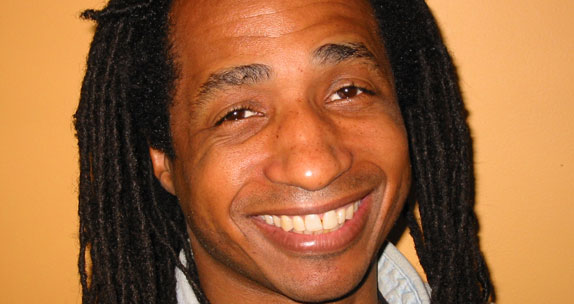
Since 1998, more than two thousand dead bodies have been found in Arizona’s Sonora Desert — the remains of “border crossers” who perished en route to the United States from Mexico. In true cinéma vérité style, The Undocumented (premiering Monday, April 29, 2013 at 10pm) by acclaimed filmmaker Marco Williams, reveals the ongoing impact of immigration laws and economic policies on the very people who continue to be affected by them. By going beyond politics, the film also tells a story that is deeply personal. We recently spoke with Williams about the making of his film and the impact he hopes it will have on the national immigration debate.
What impact do you hope this film will have?
I hope that my film will raise awareness of a little known issue of the immigration narrative debate in our nation.
What led you to make this film?
I feel that immigration is a civil rights issue, perhaps the civil rights issue of the early 21st century. I am concerned with injustice.
What were some of the challenges you faced in making this film?
I wanted to make a film about migrant deaths. I wanted their stories to be the primary narrative. I did not want Americans to be seen as heroes. However, how can you do this, given that the dead don’t talk?
How did you gain the trust of the subjects in your film?
I believe that the most important action in making a documentary is expressing one’s curiosity. I never told anyone at the outset, “I want to make a film about….” I began by asking questions. Once I met folks like the Chief Medical Examiner or the Consular General of the Mexican Consulate of Tucson and understood what they do and how they do it, then I was able to articulate what I wished to do. So, trust — as in any relationship — is developed, not given.
What would you have liked to include in your film that didn’t make the cut?
I wanted to make an observational documentary. I ultimately made compromises to this vision. But there is one sequence that when filming I was certain would not make it into the film and then in editing became my absolute favorite scene. It was with a woman in Mexico whose husband crossed and has not been seen or heard from since his crossing attempt. Her grief was so profound. She epitomizes what so many family members feel and experience. But, her story was a one-off story and in the film it detracted from the other stories.
Tell us about a scene in the film that especially moved or resonated with you.
Marcos Hernandez, whose father is missing, shares that there are so many things that he did not get to tell his father, such as how much he loved him. He cries. His honesty is compelling.
The independent film business is a difficult one. What keeps you motivated?
Belief in what I have to say is what keeps me motivated. However, I am not confident that I will be able to continue to raise the money to make films on the challenging topics about America.
Why did you choose to present your film on public television?
Public television allows me the best opportunity to reach the greatest number of Americans. It is an honor.
What are your three favorite films?
The Times of Harvey Milk, Killer of Sheep, Why We Fight
What advice do you have for aspiring filmmakers?
Making documentaries is akin to going steady. It is not a one night stand.
Watch The Undocumented premiering Monday, April 29 at 10pm (check local listings).



